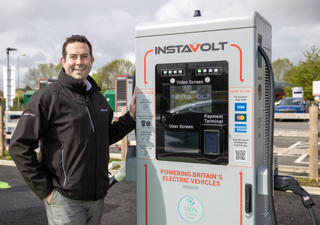Paragon Automotive aims to make smarter use of both its people and staff after deploying RFID technology at its newly-redeveloped site in Immingham.
The company, which provides new, in-life, used and remarketing services to the automotive industry and handles more than one million new and used vehicles a year, believes it will see significant cost savings and service-enhancing benefits throughout the vehicle’s lifecycle.
The automotive sector is booming in the UK with a record 2.63m new cars sold in 2015. Many of these new cars are imported into the UK and managed by Paragon at the docks, where they are prepared for the UK market and stored before transport to retailers.
Chris Higgins, group IT director at Paragon, said: "We are always looking for ways to work smarter. RFID was one such technology that has been developing for a number of years and it was a case of waiting for the performance to meet our requirements.
“We have integrated RFID deep into our system and business processes and we are already seeing some benefits that are beyond our expectations.”
The company says it has seen improvements in stock control, compound management and wider merit in a data-rich environment.
“The power is not really in the RFID technology itself but rather in the real-time data it generates and the unique ways we are making use of that within our central Evolution IT platform, along with new-generation and mobile devices to make us smarter and more efficient.”
With up to 20,000 vehicles managed by a single site, RFID enables each vehicle to be geo-located as it moves through the process, making significant time savings in vehicle management and increasing transparency.
Every vehicle is tagged the moment it enters Paragon’s care. In the case of the first RFID deployment, this is at the point the new units are taken off car transporter vessels at the quayside.
As the tag is applied, it is matched to the factory barcode and linked to the vehicle record in Paragon’s Evolution system.
On site, when a vehicle is recognised by its RFID tag, the system determines the location, status and workflow required to ensure total control and process adherence.
Elsewhere on site, RFID technology allows for entire transporters to be scanned in order to confirm load contents and despatches, which creates a large saving in terms of man hours.
Higgins said: “Where a stock check of 20,000 vehicles would have taken a team of 20 people an entire weekend, we can now complete the task at the push of a button."



















Login to comment
Comments
No comments have been made yet.